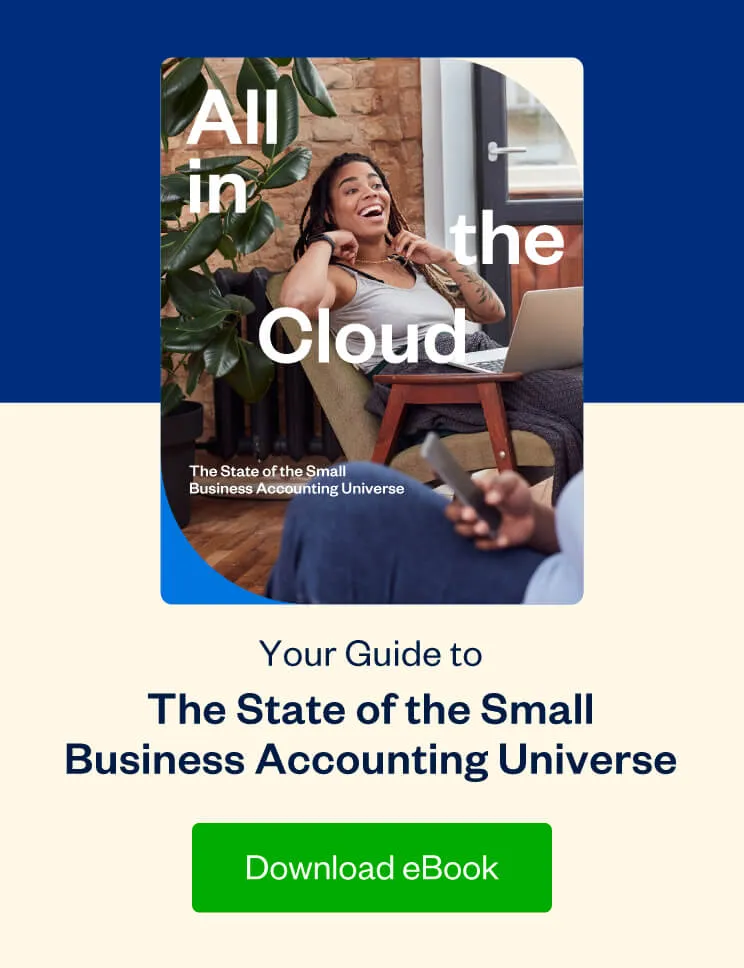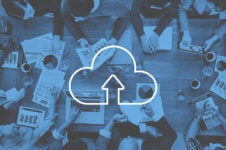Data science helps us provide the very best product and service. Here’s how.

Do you ever feel like you’re never alone when you’re online? Like someone is watching and recording every keystroke? No one likes that spooky feeling of having an anonymous eavesdropper listening in on every email exchange or watching our every internet search. That’s why we want to share with you how we approach data security at FreshBooks.
We owe it to you to provide assurance that your data is secure. We want to publicly promise that your privacy is respected. And most exciting of all? We want to give you an inside look at the many ways we use data to imagine and deliver the best cloud accounting solution with amazing customer service for all small business owners.
Let’s get started!
What Is Data Security?
Simply put, data is information. It’s a collection of facts about you, using the information you have chosen to share with a business explicitly (your name, address, etc.), or implicitly (the way you interact with the company, such as purchases or other transactions). Data might include your:
- Name and contact information
- Date of birth
- Product usage information
- Personal preferences, such as favoring text over email or where you like to shop
There have been some very public data breaches in the news over the last few years. These data security incidents have resulted in customer information being released into the wild. As a result, hundreds of thousands of people’s privacy was at risk, and the threat of identity theft was higher than most people would like.
Whether they’re cloud-based or bricks and mortar retail operations, all companies that collect any form of data from their customers should have an ironclad plan to protect their privacy. Here at FreshBooks, we go to great lengths to protect our customers’ personally identified information (PII). We’ll share some of our security measures with you later.
Why Do We Use Data?
Data—or customer information—is important because it allows companies to understand and serve their customers better.
FreshBooks’ lead data scientist Kris Heidler explains how it works around here: “We use our customer data to better understand what drives our customers to do what they do, and how engaged they are with our product so we can improve the experience they have with us.”
By observing the way our customers use FreshBooks, we can do things like:
- Personalize messages that are relevant to you and your business
- Understand the needs and pain points of small business owners across all industries and geographic regions
- Develop new features that meet these needs
- Provide qualitative information about specific industries in particular areas of the world
How Do We Use Data?
First, we want you to know that, at FreshBooks, we are definitely excited about the way you use our product to run your amazing small business. The data we collect from the FreshBooks’ activity of our thousands and thousands of customers around the world can contribute to providing personalized product and mind-blowing customer service.
Here are a few ways we use data at FreshBooks:
1. To Support Our Customers
Providing a personalized customer experience is important to us. That way, we can make sure you’re getting the information you need, when you need it.
“We apply algorithms to the data to start separating the users that we have into different buckets where we understand what people in those buckets will generally do. Ones who are using the product a lot right off the bat may get a call from sales to see how we can help them.
Others who are just tinkering might get a nurturing call from support to see if they need help using any of the features. And people who signed up but have no activity may get an email with more information. The idea is to use data to show us how to help our customers individually,” says Heidler.
2. To Predict Customer Behavior
It’s important to point out that when Heidler and his team are analyzing data, they’re not looking at individual profiles, rather big-picture patterns.
“We capture everything our customers are doing, but if you drill down too much on anyone’s day it doesn’t mean that much. We apply data science to understand what those large patterns mean,” says Heidler.
This helps us create a customer pathway that is intuitive and accessible to users, as evidenced by the way most small business owners use FreshBooks.
3. To Provide Industry- and Business-Specific Information
A very simple way we collect data at FreshBooks is by asking our customers about themselves when they sign up for a free trial. The information you provide helps us know how to support you and which features you’ll most want to learn about.
For example, when you identify as a freelance writer, you’ll probably be interested in Time Tracking. So we might send you an email with details on how to use it. If you’re a small business owner with multiple employees, you’ll likely want to learn how teams can collaborate using Projects. So you would receive information about how to use that.
“If customers tell us what they do, we can personalize their experience by prioritizing certain features over others,” says Heidler.
“The goal is to give you relevant content and not ask you to take time out of your day to do things you don’t need to do or have already done. The more we can understand what you need, the more we can personalize your customer experience.”
4. To Offer Valuable Market Research
The information you share about your business and your industry also helps us provide market research that can offer insights on how you run your business. Examples include:
- FreshBooks’ 3rd Annual Report Reveals 24 Million Americans Want to Become Self-Employed by 2021 but Face Barriers to Making the Leap
- Women in the Independent Workforce—2nd Annual Report, 2019
- Myths Busted—Not All Entrepreneurs 65 and Older Are Ready to Retire
You can find more of our data and research here.
How Do We Ensure Data Security?
When it comes to data, we pride ourselves on being a steel trap. Our data security measures include:
- 256-bit SSL encryption: The lock icon in your browser verifies that you aren’t talking to a phishing site impersonating FreshBooks and ensures data security in transit.
- Firewalls: FreshBooks and your data are safely housed behind firewalls.
- Vulnerability scanning: Our servers are regularly scanned for vulnerabilities by a third party. The scans test servers from the internet and from inside our network.
- Physical data security: Our servers are located in state-of-the-art data centers which provide biometric access controls, constant surveillance, robust fire suppression and more to protect the servers that store your data.
When it comes to managing the data that Heidler and his team use, there are built-in safeguards there, too. “Generally, when we do any data analysis or algorithm development, we use large enough quantities of users that it’s not possible to uncover or identify any individual users’ information. Thousands and thousands of users are pulled together. We’re more interested in the group activity than any one user.”
How Does Data Contribute to Potential Advancements at FreshBooks?
While our artificial intelligence (AI) efforts are still in development, Heidler says there’s potential to provide even more value to our customers using data. Using the information you volunteer to us, we could feed back to you relevant market research for your industry in your part of the world.
Comparative Business Metrics
For example, users who profile themselves (e.g., “I am a web designer”) could begin to receive useful comparative business metrics they can use to benchmark their business. A web designer might like to learn:
- What is the average invoice size for web designers?
- How long does the average web designer take to get paid?
- What is the average monthly revenue of other web designers?
Using our data, we could potentially tell our active users their industry average and their own average, so they can see how they stack up. “If everyone is getting paid faster than me, why is that and what can I do about it?”
Learn from Top Performers
We could also take things one step further by scouring our records for the best performers for various metrics and interviewing them to get tips. Then we could feature them as experts so other businesses can learn how to run their own businesses more effectively.
Of course, just like the information we collect today, the data would only be used in its anonymous aggregate form. We’re never looking into your data on an individual basis and it wouldn’t be copied or shared outside of our organization.
“If I were a new entrepreneur just starting out, I would have no idea what my services are worth. It would be helpful if FreshBooks could guide me and make recommendations based on the successful businesses that they currently service. This is exactly what we are in a position to do for our users,” says Heidler.
“The possibilities are endless. And we’re on the road to doing this.”
This post was updated in April, 2020.

Written by Heather Hudson, Freelance Contributor
Posted on October 4, 2006

 How Secure Is Your Data in the Cloud?
How Secure Is Your Data in the Cloud? Data Security: Are Your Business Records Safe in Case of Disaster?
Data Security: Are Your Business Records Safe in Case of Disaster? Digital Security: 6 Easy Tips to Secure Your Business
Digital Security: 6 Easy Tips to Secure Your Business





